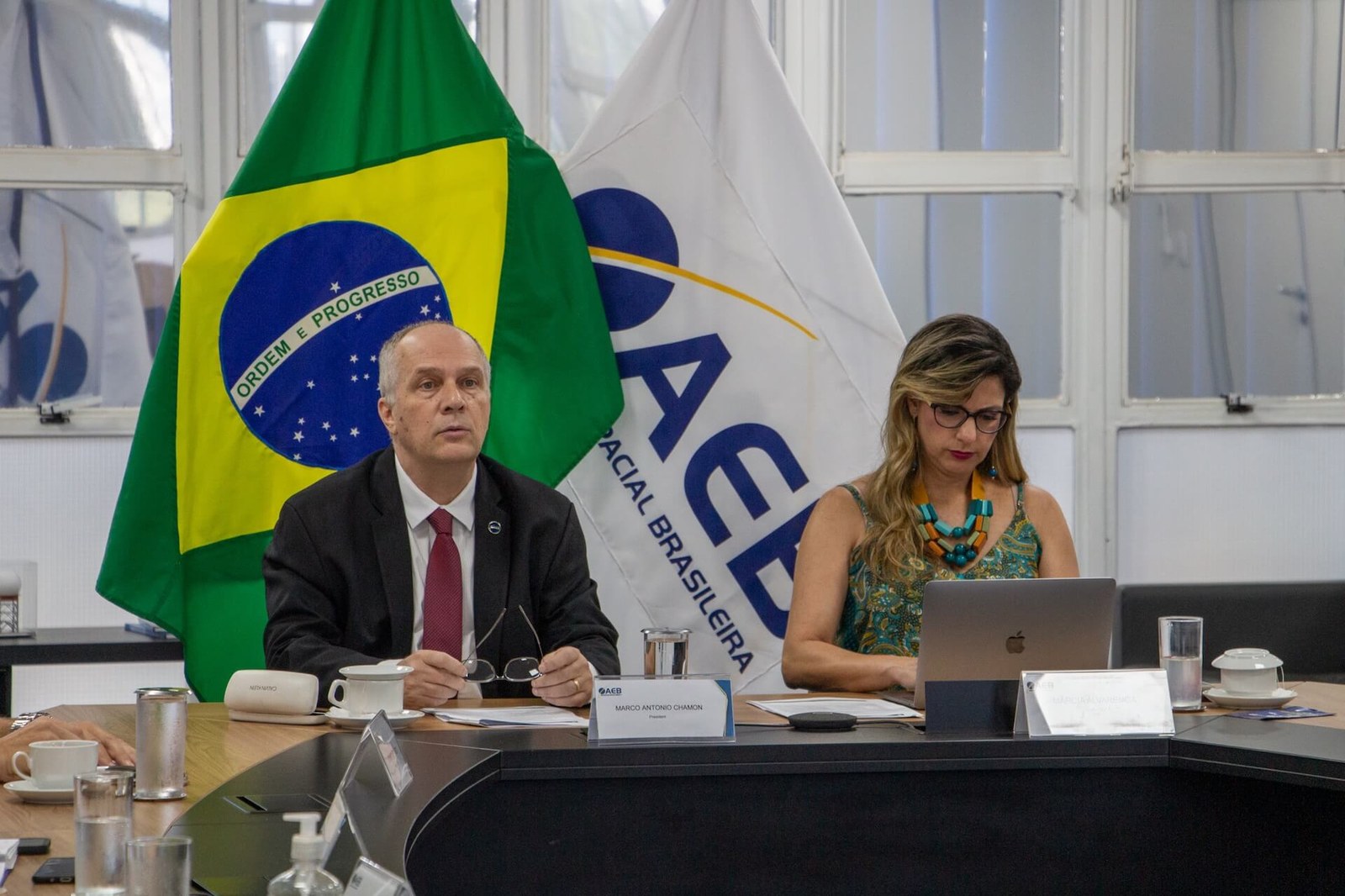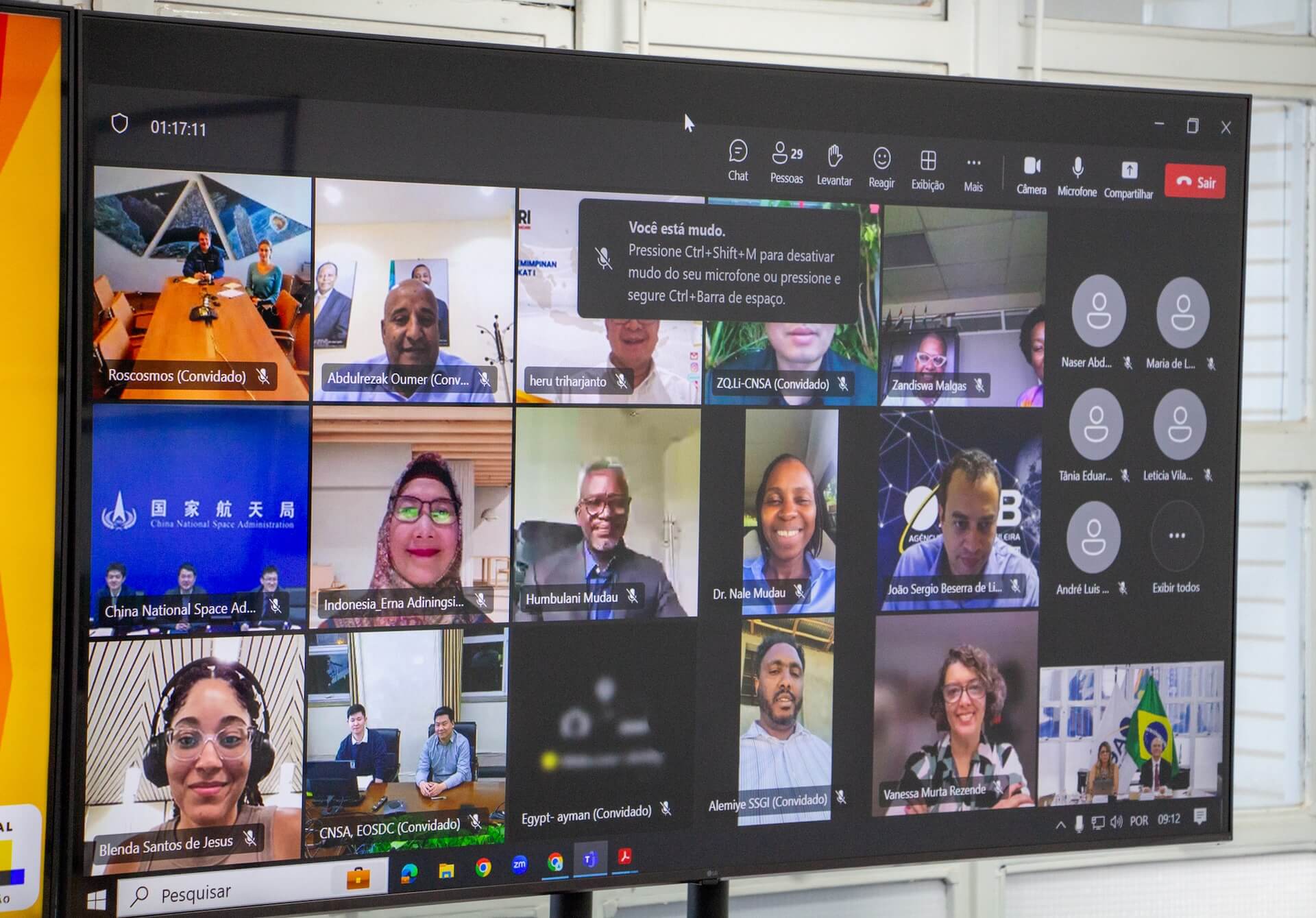Brasil hosts first BRICS meeting focused on the space sector
The meeting addressed inclusive governance and the role of the space sector in global development. It tackled the need to reduce technological asymmetries among countries, promote guidelines for the sustainability of space activities, and expand collaboration for the peaceful use of space.

The Brazilian Space Agency (Agência Espacial Brasileira /AEB) hosted the first meeting with BRICS space leaders, aiming to present the priorities and the agenda of Brasil’s BRICS Presidency in 2025 regarding space issues specifically.
Under the theme “Strengthening Global South Cooperation for an Inclusive and Sustainable Governance”, the BRICS meetings reflect the importance of the group not only on the economy but also in promoting diversity and a more inclusive global governance.

At the start of the meeting, AEB President Marco Antonio Chamon highlighted the evolution of cooperation in the sector. As an example, he mentioned the initial discussions of the Agreement on Cooperation on BRICS Remote Sensing Satellite Constellation, signed in August 2021, and the creation of the BRICS Joint Committee for Space Cooperation in 2022. Brasil proposed using this agreement to monitor deforestation in the Amazon, incentivizing similar projects among the members.
“Today we begin our work with the space agencies that compose the BRICS. Brasil is presiding over the BRICS this year, and we intend to move forward with development projects that allow for the expansion of the group’s influence in the world through space technology,” Chamon declared.
Other highlights included the need to reduce technological asymmetries among the countries, promote guidelines for the sustainability of space activities, and expand collaboration in the peaceful use of space. The work plans and procedures for future meetings —including an in-person meeting in Brasília, scheduled for April 2025— were also presented.
On this occasion, the representative from the National Research and Innovation Agency of Indonesia (BRIN) — a country recently incorporated into the group— presented the country’s main space activities. Other country representatives also had the opportunity to speak.
Participants in the meeting included representatives from the space agencies from China, Egypt, Ethiopia, India, Indonesia, Russia, South Africa, and the United Arab Emirates, and a representative from Brasil’s Ministry of Foreign Affairs.
About the BRICS
The BRICS is currently composed of eleven emerging economies: Brasil, Russia, India, China, South Africa, Egypt, Ethiopia, Indonesia, Iran, and the United Arab Emirates. The group was established to promote economic, political, and social cooperation among these nations, which together represent a significant portion of the global economy and population.
Under the theme “Strengthening Global South Cooperation for an Inclusive and Sustainable Governance”, the Brazilian Government’s presidency of the BRICS in 2025 will focus on six priority areas: Cooperation in Global Health; Trade, Investments, and Finance; Climate Change; Artificial Intelligence Governance; Multilateral Architecture for Peace and Security; and the Institutional Development of the BRICS.
About AEB
The Brazilian Space Agency (AEB), the central organ of the country’s National System for the Development of Space Activities (Sistema Nacional de Desenvolvimento das Atividades Espaciais /SINDAE), is a public autarchy linked to the Ministry of Science, Technology, and Innovation (Ministério da Ciência, Tecnologia e Inovação /MCTI), responsible for the formulation, coordination, and implementation of the Brazilian Space Policy.
Since its foundation on February 10, 1994, the AEB works to enable the Brazilian State’s efforts to promote society’s well-being through the sovereign use of the space sector.